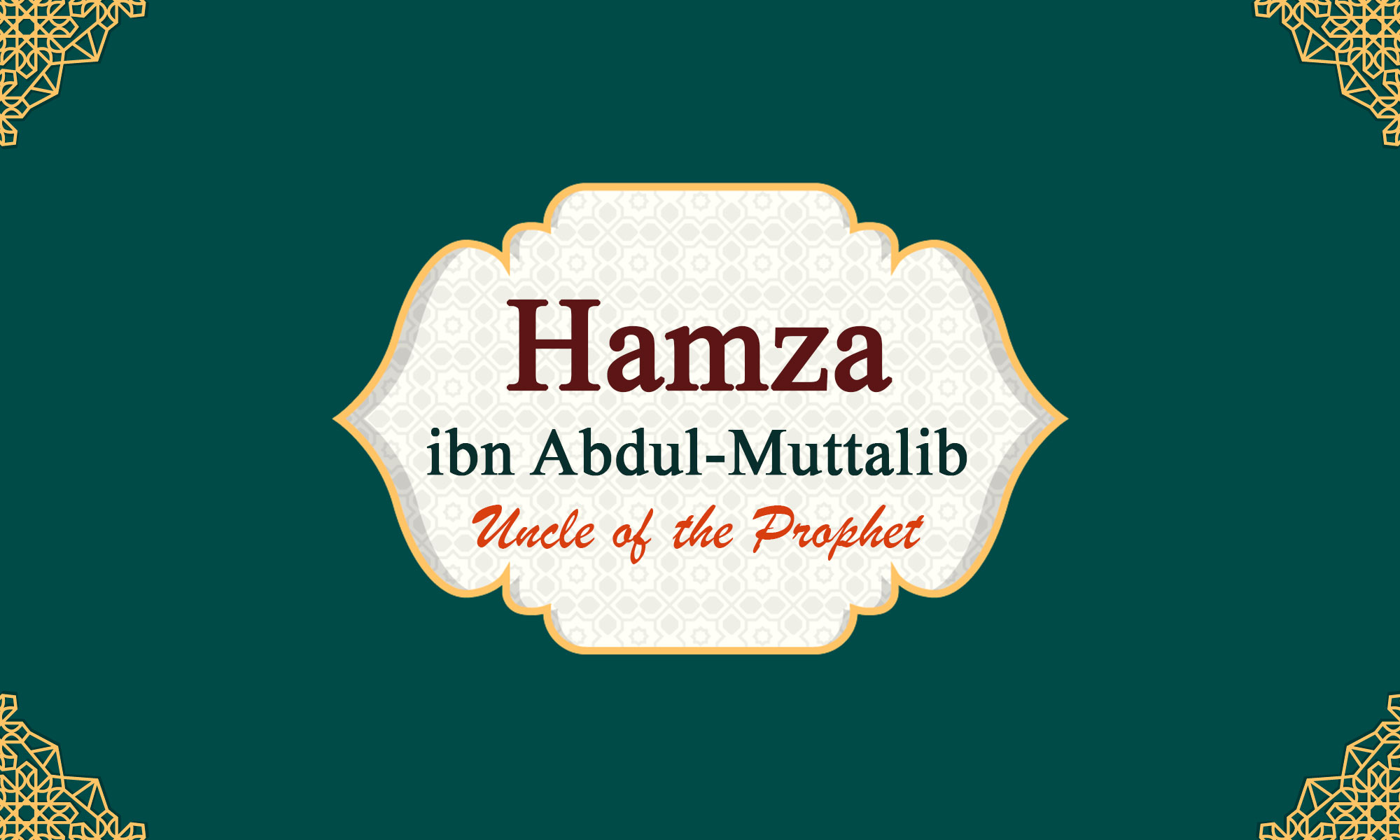Lineage & Life of Hamza
He is Hamza ibn Abdul-Muttalib ibn Hashim ibn Abd Manaf ibn Qusay, known by the epithet "The Lion of God" (Asadullah), as established by the saying of the Prophet (peace and blessings be upon him): "Hamza ibn Abdul-Muttalib is the leader of the martyrs". He was also titled "The Leader of the Martyrs".
He had several children, including Ya'la and 'Aamir, from his wife, Bint al-Malaa ibn Malik ibn Abada. He had 'Umara from his wife Khawla al-Ansariyya. He was blessed with a daughter, Umama, from his wife Salma bint Amis, the sister of Asma' al-Khathamiyya. Hamza ibn Abdul-Muttalib (may God be pleased with him) was also known as Abu 'Amara.
The Story of Hamza ibn Abdul-Muttalib
The story of Hamza's embracing Islam began when he heard that Abu Jahl had insulted, abused, and harmed Muhammad (peace be upon him). Hamza, angered by what he heard, was returning from a hunting expedition when he came across Abu Jahl amidst a gathering of Quraysh leaders. Hamza, holding a bow, struck Abu Jahl on the head upon learning about his insults toward Muhammad (peace be upon him). Despite attempting to retaliate, Abu Jahl was stopped by Quraysh men, and Hamza openly declared his Islam without fear or hesitation.
Hamza's conversion to Islam significantly impacted Quraysh. It coincided with the rise of the Prophet's message among people, leading to challenges for Quraysh's leadership, authority, and wealth. The Prophet (peace be upon him) refused their offers, steadfastly calling for the unity of God. It's incorrect to claim that Hamza's conversion was coincidental; rather, it was a divine decree and a means to support Muhammad's mission ordained by God for protection, strength, and support of the Prophet, his message, and his followers.
Hamza's Jihad
In the Battle of Badr, the Prophet entrusted Hamza (may God be pleased with him) with a special task. When Quraysh's champions, 'Utba ibn Rabi'a, along with his brother and son, came forward seeking combatants, the Prophet called upon Hamza, Ali, and Ubaida.
Hamza faced Utba and fought him, ultimately killing him. Hamza was known for his strength, bravery, and his distinct mark in battle, a feather from an ostrich. The pagans would wonder about the one marked with a feather on his chest, identifying him as Hamza, the one who caused them great distress.
Hamza's Role in the Battle of Uhud
Hamza fought alongside the Prophet (peace be upon him) with two swords during the Battle of Uhud. He was credited with killing more than thirty pagans during this battle.
His presence and actions drew the attention and conspiracies of the pagans, leading to Jubeir ibn Mut'im, known as "The Ethiopian," being bribed to hunt and kill Hamza. He succeeded in this at the instigation of Hind bint Utbah, who had lost her father, brother, son, and uncle in the battle. Hamza was martyred by Jubeir during this conflict.
The Martyrdom of Hamza ibn Abdul-Muttalib
During the Battle of Uhud, Hamza fought fiercely but stumbled and fell, exposing his abdomen. The Abyssinian slave, Wahshi, speared him, leading to his martyrdom on Saturday, the 15th of Shawwal, in the third year of Hijra. He was around fifty-nine or, some say, fifty-four years old at the time. He earned the title "Leader of the Martyrs". He was buried in Medina.
